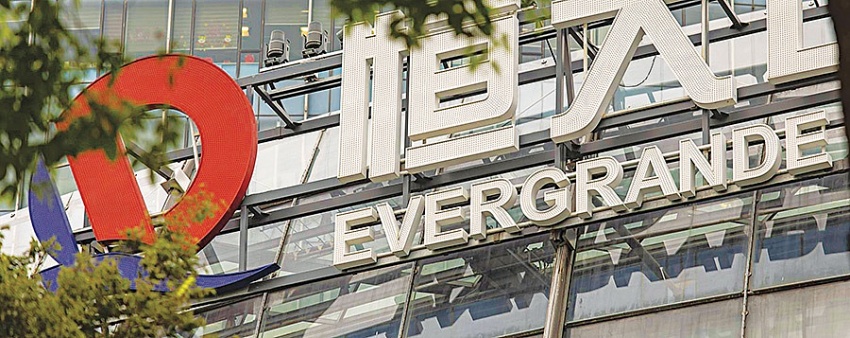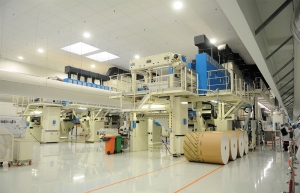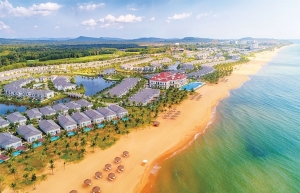Real estate market urged to take heed from China
 |
| Real estate market urged to take heed from China, Photo: Le Toan |
Despite concerns surrounding Evergrande Group’s financial struggles that continue to cause ripples in global investor sentiment, some experts say a domino effect is far off for Vietnam.
Last month, Chinese real estate group Evergrande filed for bankruptcy protection in the United States. The company made headlines around the world in 2021 when it revealed total liabilities had reached $300 billion, and the cash-strapped company struggled to pay suppliers and complete homes, with property revenues plunging.
Earlier this month, the company delayed making a decision on offshore debt restructuring to October, to allow more time to consider a fresh restructuring plan.
Trading in the company’s stock resumed on August 28 after being suspended for almost 18 months.
The issue has spread to other enterprises. Since mid-2021, companies accounting for 40 per cent of Chinese home sales have defaulted, according to analyst estimates, and some of the millions of Chinese people who put their savings in property-linked wealth management products face the prospect of not getting a refund.
“Evergrande’s properties were sold as a speculative investment, not sold as a place to live,” said Anne Stevenson-Yang, managing principal at J Capital Research in the US. “People purchased them because they thought the value would appreciate, so obviously the confidence game will only work as long as people keep buying.”
China’s property market was shaken again in recent weeks when another major developer Country Garden missed payments on two US dollar bonds and sought to delay repayment on a private onshore bond.
Damian Sung, institutional sales director for the Asian Bankers Club (ABC), told VIR that while countries like Cambodia and Malaysia, which have strong ties with China, might bear the brunt of the situation, Vietnam could emerge unscathed.
“Experts are leaning towards the idea that Vietnam’s real estate market will only experience a minor impact. The market is relatively compact, which helps limit the potential fallout,” Sung said. “Plus, Vietnam’s real estate sector has been showing resilience, with steady growth and increasing foreign investments in recent times. All of this combined lowers the chances of Evergrande’s crisis becoming the sole reason for a major shift in attention towards Vietnam’s real estate landscape.”
While confidence might waver temporarily, the market’s overall stability is likely to counter any prolonged setbacks, Sung added.
“Foreign investments have been flowing into Vietnam’s real estate sector, which has proven its ability to weather uncertainties. This stability makes Vietnam an attractive option, reducing the likelihood of a significant change in foreign investors’ involvement,” he said.
Meanwhile Xavier Jean, senior director of Corporate Ratings at S&P Global Ratings, said that Vietnam’s real estate market, like in China, remains largely dominated by domestic buyers rather than international investors.
“But regardless if a buyer is a domestic household or a foreigner, buyer confidence is the key ingredient to Vietnam’s real estate sector right now – confidence the developer will have sufficient funds to complete the flat or house, and deliver on time,” said Jean.
“In Vietnam, access to domestic bond markets is more difficult for the real estate sector. If the downturn is prolonged, banks may also start to become more selective in funding projects. In buyers’ minds, that means the possibility of further credit stress for the developers, uncertainty on timely delivery of the real estate purchase, and less incentive to invest in real estate,” he said.
However, Sung from ABC said that it is important to note that Vietnamese real estate stakeholders face similar risks to those in China.
“The way capital is generated from future property sales, similar to Evergrande’s model, could bring its own set of challenges. Financial limitations and incomplete qualifications among investors might lead to project delays and worries about debts. That’s why being cautious is crucial,” Sung said.
Moreover, Vietnam is not entirely immune to industry-wide risks. Smart financial management and strict regulations will continue to be crucial in maintaining stability over the long term and ensuring that investor confidence remains intact, he added.
Jean from S&P Global explained that the restructuring strategy of companies in the sector will have a bearing on how long the real estate downturn will last. “If the experience in China is a guide, a key ingredient to resuming growth is a sustainable recovery in confidence. That implies a broad and lasting perception that leverage in the sector has improved,” he added.
| Prof. Dr. Dang Hung Vo - Former Deputy Minister of Natural Resources and Environment Evergrande is a large-scale corporation, investing in some projects in Vietnam and other major countries around the world. Therefore, there is an impact on the Vietnamese real estate market. In recent times, both Vietnam and China clearly revealed their overload in investing in real estate investment. To solve the problem, both governments have proposed solution packages to overcome difficulties in real estate. But it is necessary to understand that real estate is an investment process, and businesses that decide to invest must be responsible for the consequences of their investment. China also implemented a number of policies to rescue real estate, but they were ineffective. The stagnation of the real estate market will also affect many other businesses in China, not just Evergrande. Dr. Dinh The Hien - Banking and finance expert The Evergrande debt bomb had a big impact on the Chinese market, but the incident has not affected the Vietnamese real estate market. The original cause of the crisis is that the Chinese government wants to proactively control the real estate bubble, unrelated to markets outside its territory. China and Vietnam have some similarities: selling houses formed in the future, most people prefer to accumulate assets from real estate and debt businesses and issuing bonds to develop the project. These similarities only show that there is reason to worry about psychological effects, but they are not significant. Vietnam does not have real estate companies raising capital with large-scale international bonds like China. Vietnam’s monetary policy in the past four years has been well controlled and the State Bank of Vietnam has also strengthened supervision of real estate loans and has a roadmap to protect the safety of the commercial banking system. Dr. Nguyen Tri Hieu - Economist Evergrande’s problems will not directly affect the Vietnamese real estate market, but may only affect it indirectly. If they are also contractors for projects in Vietnam, when the Evergrande debt bursts, there will be no money left to pay the contractors. Contractors have also had no money to supply raw materials to Vietnam, another indirect effect on the Vietnamese market. Evergrande is a huge lesson for real estate traders in Vietnam in issuing bonds. In the context of Vietnam’s real estate market being in a difficult situation, it will more or less have a negative impact on the psychology of many investors. Indirect psychological impacts on investors and customers will affect the market. |
 | Industrial hubs to propel innovation Increasing emphasis on integrating innovation hubs into industrial parks is signifying a fresh direction in collaborative initiatives aimed at enhancing Vietnam’s industrial advancement. |
 | Real estate giants the focus of specialised audits The General Department of Taxation (GDT) has unveiled a list of 42 companies marked for specialised audits this year, bringing several high-profile real estate firms under its lens. The move follows the department's recent Decision No.1326, delineating its audit strategy for the forthcoming year. |
 | Falloff persists for real estate in tourism Tourism real estate is still attempting to get on the front foot amid reduced selling prices and slow liquidity. |
What the stars mean:
★ Poor ★ ★ Promising ★★★ Good ★★★★ Very good ★★★★★ Exceptional
Related Contents
Latest News
More News
- Construction firms poised for growth on public investment and capital market support (February 11, 2026 | 11:38)
- Mitsubishi acquires Thuan An 1 residential development from PDR (February 09, 2026 | 08:00)
- Frasers Property and GELEX Infrastructure propose new joint venture (February 07, 2026 | 15:00)
- Sun Group led consortium selected as investor for new urban area (February 06, 2026 | 15:20)
- Vietnam breaks into Top 10 countries and regions for LEED outside the US (February 05, 2026 | 17:56)
- Fairmont opens first Vietnam property in Hanoi (February 04, 2026 | 16:09)
- Real estate investment trusts pivotal for long-term success (February 02, 2026 | 11:09)
- Dong Nai experiences shifting expectations and new industrial cycle (January 28, 2026 | 09:00)
- An Phat 5 Industrial Park targets ESG-driven investors in Hai Phong (January 26, 2026 | 08:30)
- Decree opens incentives for green urban development (January 24, 2026 | 11:18)

 Tag:
Tag:




















 Mobile Version
Mobile Version